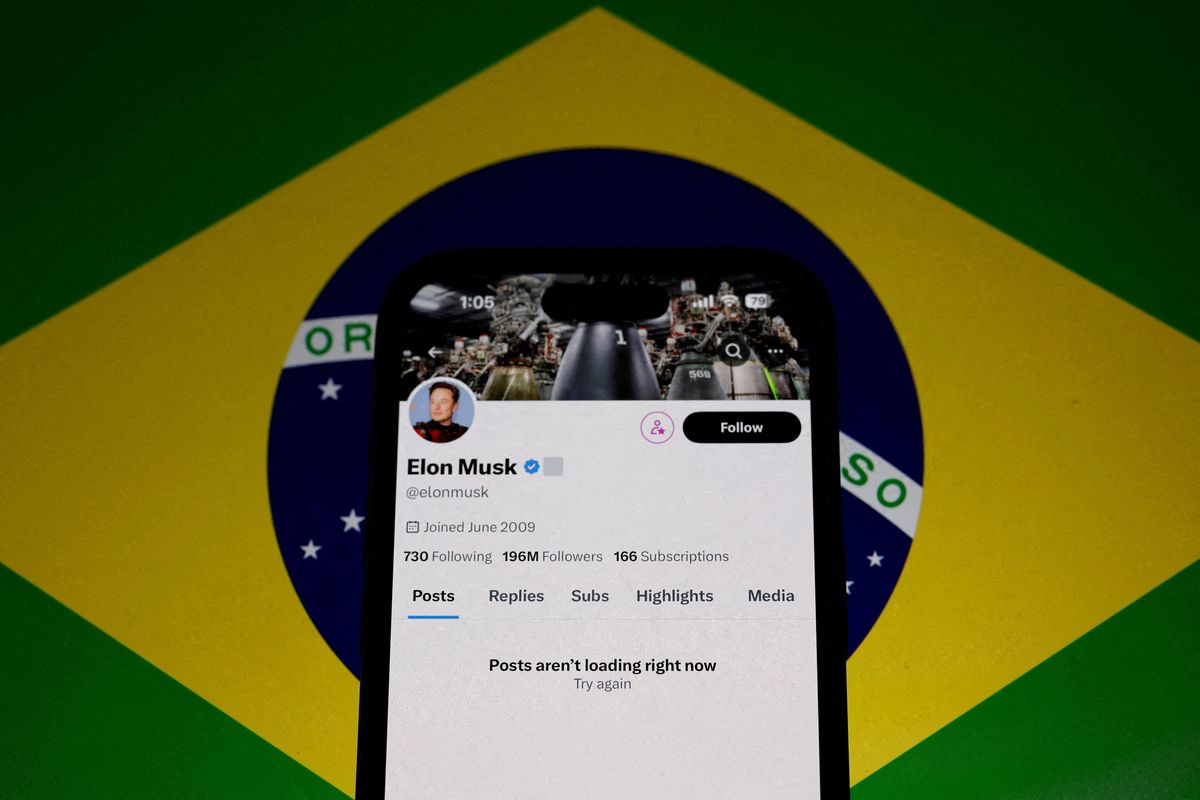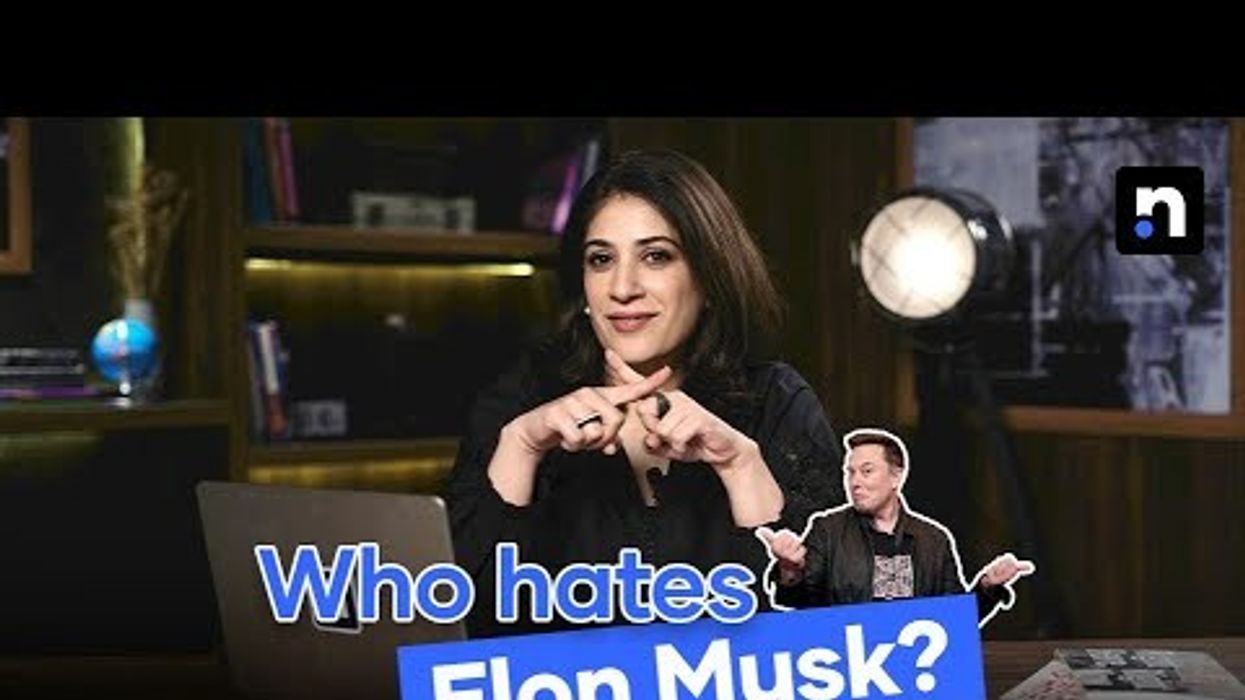A tale of two bans: How Pakistan and Brazil handled X shutdowns
Pakistan blocked X during a politically charged environment surrounding the general elections, while Brazil's ban was rooted in a court decision
Sheraz Khan
Senior Producer, Monitoring Desk
Sheraz Khan Rajput is a veteran journalist with nearly two decades of experience in broadcast and digital media, specializing in breaking news, scriptwriting, research, and fact-checking.

Fatima Zaidi
Chief Correspondent Karachi
The author is a Chevening Scholar and an experienced print and digital journalist with over 10 years of combined experience in newsrooms at leading Pakistani English publications.
Pakistan and Brazil banned X in 2024, both citing content moderation concerns
Brazil's ban was transparent, court-ordered, and lifted after X complied
Pakistan's ban lacked transparency and remains in effect
In 2024, Pakistan and Brazil both imposed bans on X (formerly Twitter), citing concerns over disinformation, national security, and political instability. Despite similar motivations, the transparency, market impact, and outcomes of these bans reveal contrasting approaches by the two countries and the social media platform itself.
X's saga in Brazil, which began with a ban in August 2024, has recently come to an end after a legal standoff with the country's Supreme Court. The platform can now operate in Brazil again, following the lifting of the August ban that was imposed due to non-compliance with court orders. X's return to operation came after it paid a $5.2 million fine and agreed to block flagged accounts.
Contrasting approaches
Some 13,774 km away from Pakistan, Brazil’s handling of the X ban was more transparent, rooted in a court's transparent and public orders. After a standoff between Musk and the Brazilian authorities, by September 22, 2024, X began to comply with the court orders, reinstating a legal representative and blocking the user accounts that were identified as “propagating misinformation and undermining Brazilian democracy.” Much of the company’s fines have also been paid off.
In Pakistan, the lack of transparency around the X ban has created uncertainty and mistrust. The government’s delayed admission of responsibility fueled allegations that the move was politically motivated. Brazil, on the other hand, executed its ban with legal clarity. The judiciary openly communicated the reasons for the suspension, and X’s refusal to comply. Despite Musk’s initial defiance, Brazil’s strong legal framework forced him to capitulate.
This transparency of the judicial process provided public legitimacy to the ban which showed that the ban was rooted in the country’s efforts to protect its democracy.
On public reaction to the ban, Brazilian journalist Taina Seixas Sigmaringa explained to Nukta, "The population is divided on this issue. People who engage in the discourse released by Elon Musk are usually supporters of former President Bolsonaro or his own allies. But in general, I understand that people have been more supportive of Moraes' decision, because they believe Elon Musk needs to follow Brazilian law if he wants to continue doing business in Brazil."
As X has been reinstated in Brazil and remains blocked in Pakistan, the two cases illustrate the complex interplay between technology, governance, and public accountability.
The conflict in Brazil
The conflict between Elon Musk, X's owner, and Brazil's judiciary began when Supreme Court Justice Alexandre de Moraes ordered X to block specific accounts associated with far-right groups and disinformation campaigns. Musk initially refused to comply, framing the orders as censorship. This led to de Moraes ordering X to cease operations in the country entirely in August, citing Musk's failure to adhere to Brazil's content moderation laws and the platform's unwillingness to appoint a legal representative to handle government requests.
The court levied $5.2 million in fines, requiring payment before X could resume operating. Musk launched personal attacks on de Moraes and initially refused to comply with the court's orders. In response, de Moraes froze bank accounts tied to Starlink, another Musk-owned company, and threatened legal action against X's local representatives.
Ultimately, X agreed to pay the fines, block the accounts flagged by de Moraes, and appoint a legal representative to respond to future government requests. The platform stated that it would continue to defend free speech "within the boundaries of the law."
Taina said, "The Brazilian Internet Bill of Rights, enacted in 2014, is the closest thing to this and has already become obsolete and incapable of dealing with all the complexity that the issue requires." This legislative gap has created challenges for Brazilian authorities in effectively regulating social media platforms like X, particularly when confronted with issues of misinformation and political manipulation.
"Minister Alexandre de Moraes' methods are controversial. Despite having played a fundamental role in guaranteeing Brazilian democracy during the Bolsonaro administration [...] de Moraes has methods that many jurists have discussed as a great concentration of power," she continued.
Forcing compliance
Brazil is a key market for X, its sixth-largest globally with over 21.5 million users, but the country accounted for only 2% to the platform’s global revenue, with annual earnings from Brazil estimated between $80 to $100 million in 2021.

Analysts suggest that X's decision to comply was likely driven by the economic consequences of losing access to millions of users in such an important market.
On Musk's motivations for confronting Brazilian authorities, Sigmaringa said, "The assessment is that precisely because he has the support of this far-right political group in Brazil, the same as former President Bolsonaro, Elon Musk decided to challenge Brazilian sovereignty, using a distorted narrative about censorship and freedom of expression."
Solving problems the Pakistan way
This incident is part of a broader pattern of X's interactions with governments worldwide. The company has faced bans in several countries, including China, where it has been blocked since 2009. In Turkey, X agreed to censor certain accounts ahead of the 2023 presidential election at the Turkish government's request to prevent a complete platform suspension. In February 2024, Pakistan blocked X during a politically charged environment in the aftermath of the general elections.
Former prime minister Imran Khan’s Pakistan Tehreek-e-Insaf (PTI) party used X as a key strategic tool to mobilize their vote bank, since Imran Khan and PTI have a combined following of more than 30 million followers on the platform and as the traditional media censored their political activities, the PTI turned to X for political organization, mobilize protests and held virtual protests to get their message across.
Soon after, Pakistan’s 4.65 million X users started to face unexplained disruption in their access to X. And despite user reports and internet watchdogs flagging the outages, neither the government nor the Pakistan Telecommunication Authority (PTA) acknowledged the shutdown initially.
It wasn’t until April 2024 that the Ministry of Interior confirmed the ban, “citing national security concerns”, claiming the platform had failed to comply with the lawful requests of Pakistani authorities to remove content threatening the Chief Justice of Pakistan.
The financial impact of the ban in Pakistan remains minimal for X, but the platform plays a crucial role in shaping the country’s political landscape.
While the government insisted the ban was necessary to prevent disorder in the country, critics argued that it was a move to stifle political dissent. The lack of transparency in the process and no official explanation until months later only deepened these suspicions.








Comments
See what people are discussing